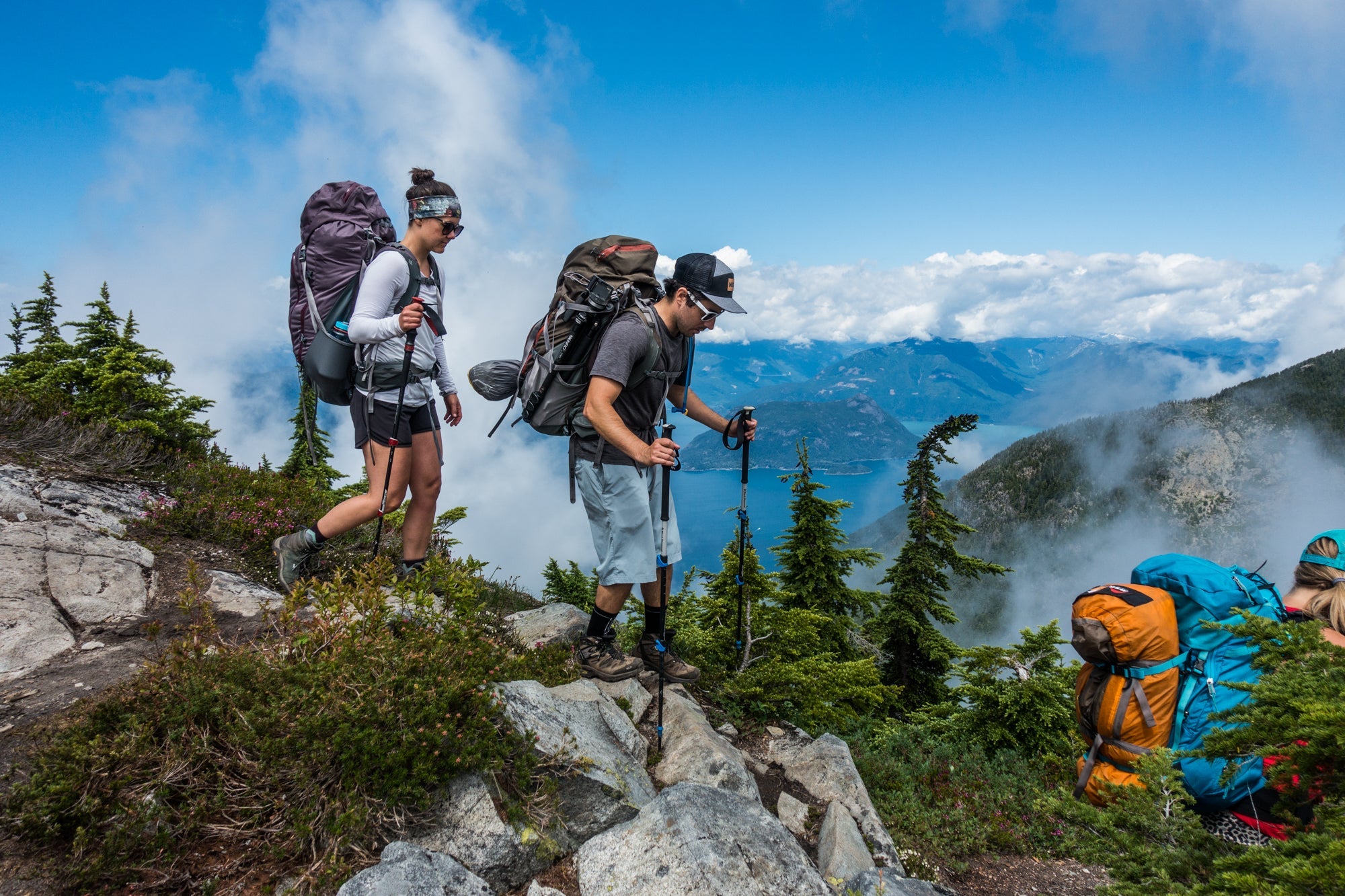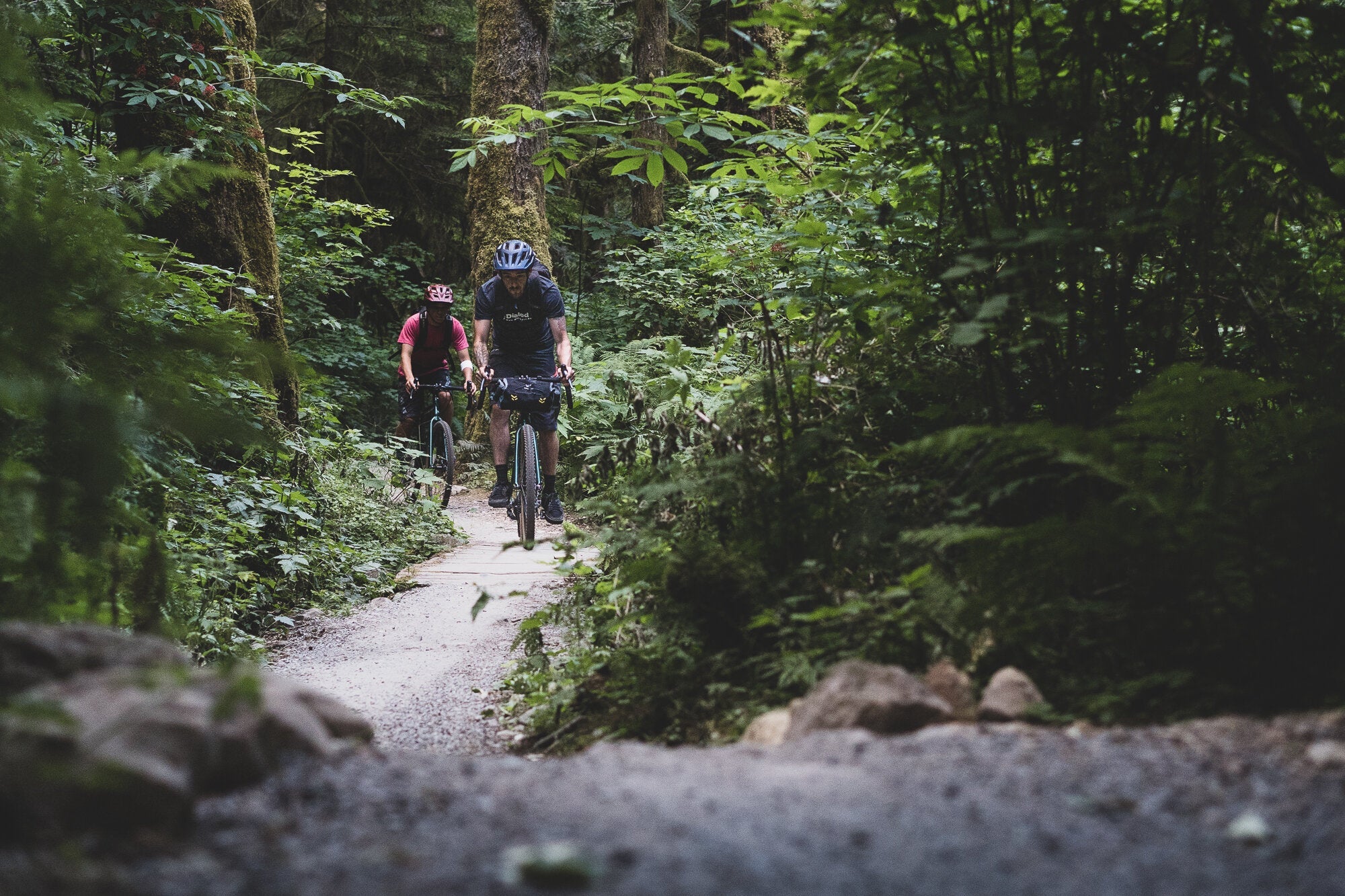Good hiking etiquette keeps the trails wild, the experiences rich, and the community strong.
There’s a lot to love about hiking—moving at your own pace, disconnecting from the noise, and getting closer to the natural world. But with more people than ever hitting the trails, a little shared respect goes a long way. Whether you’re out for an hour or a few days, here are some simple principles to help everyone have a better experience outdoors.
1. Yield the Right of Way
Trail traffic works best when everyone knows who moves aside and when:
- Uphill hikers have the right of way—if you’re heading down, step aside and let them keep their momentum.
- Hikers yield to horses. Step off the trail on the downhill side and speak calmly so you don’t startle the animals.
- Bikes yield to hikers—but be alert and ready, especially on shared-use or fast-flowing trails.
2. Be Heard (and Seen)
A friendly greeting or simple “on your left” goes a long way. It lets others know you're there and creates a more welcoming atmosphere on the trail. If you're listening to music, keep one earbud out or leave the speakers at home—nature has its own soundtrack.
3. Stick to the Trail
It can be tempting to cut corners, dodge puddles, or take a shortcut—but veering off trail can damage sensitive ecosystems and widen paths unnecessarily. Even muddy boots are better than crushed wildflowers.
4. Leave No Trace
Pack out everything you bring in—including food scraps, wrappers, and used tissues. If nature calls, do it at least 200 feet from water sources and bury it properly (or pack it out if needed). Bonus points for picking up litter someone else left behind.
5. Respect Wildlife
Give animals their space. Don’t feed them, don’t follow them, and absolutely don’t try for a selfie. Observe from a distance and move along if your presence is causing distress.
6. Keep Group Size in Check
Hiking with friends is one of the best ways to enjoy the outdoors—but large groups can overwhelm a trail. Keep conversations low, avoid blocking the path, and split up into smaller pods when it makes sense.
7. Know Before You Go
Check trail conditions, closures, and any special regulations before you head out. Bring what you need—map, layers, snacks, water—and leave the trail better than you found it.
Comfort Matters—Especially on Long Days
Good trail etiquette starts with good decision-making, and that’s hard to do when your feet are sore, sweaty, or slipping around in your boots.
Esker insoles are built for days like these—natural wool for breathability and odour resistance, with the support you need to stay steady on the way up and comfortable on the way down.
Whether you're out for a quick loop or a multi-day traverse, Esker helps you go farther with fewer distractions—so you can focus on the trail, the company, and the views.


